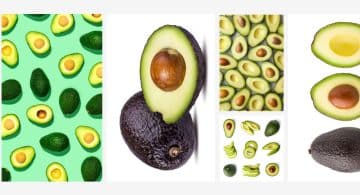If you, like many others, struggle to concentrate and often find yourself staring blankly at the computer screen when you’re supposed to be working, you know the frustration of fighting brain fog.
There are several reasons that you might be having a hard time focusing, but if there are no other health issues at play, your lack of concentration might be because you’re not getting enough key nutrients to keep your brain firing on all cylinders.
In addition to getting enough moderate exercise like running, eating a balanced diet is key to many things, including cognitive performance, and nutrient deficiencies can play a major role in disrupting your normal brain functions.
Make sure these five different foods show up in your meal plan to fight the fogginess and improve your concentration and cognitive performance.
Meat and Eggs
The B vitamins B6, B12, and folate are important for maintaining your brain function and lowering your levels of the amino acid homocysteine, which has been associated with neurocognitive disorders like dementia. In fact, it’s such an important nutrient that that research is showing that even minor deficiencies in B6, B12, and folate may be linked to lower cognitive performance.
You can find B vitamins most commonly in meat and eggs, so plant-based eaters might consider supplementing their B vitamin intake to fight off their brain fog.
Berries

Eating antioxidant-rich foods is another great way to prevent neurodegeneration and improve your concentration. Free radicals from pollutants, toxins, and inflammatory diets can lead to oxidative stress, which may then cause damage to several different cells including those in your brain.
As their name suggests, antioxidants work by combatting this oxidative stress and preventing cell damage. Certain antioxidants like anthocyanins, which can be found in deep purple fruits like blueberries, blackberries, and grapes, are thought to fight the neurodegeneration that comes from aging and can be an important factor in preventing cognitive decline.
In one study that evaluated the role of anthocyanins in blueberries, senior citizens that ate a daily serving of blueberries were tested on their cognitive abilities and were found to outperform a control group that did not eat the supplements.
Avocado

Lutein is another antioxidant that is important for your brain function. This dietary carotenoid is important for both brain development and cognitive performance, and research is showing that higher concentrations of this antioxidant in the brain are linked to better cognitive performance.
You can find lutein in vegetables like avocados, corn, and leafy greens.
Yogurt

Believe it or not, your gut health also plays a crucial role in your ability to concentrate. Your gut is populated by millions of microorganisms called your “gut microbiome” that help you to digest certain foods and promote intestinal health. In addition, they also produce neurochemicals like serotonin and dopamine that are crucial for proper brain function.
Eating probiotics can introduce healthy bacteria into your gut microbiome, which can then aid in the production of these important neurochemicals. You can find probiotics in foods like yogurt, as well as other fermented foods like sauerkraut and kimchi.
Fatty Fish

Finally, eating enough healthy fat is important for your cognitive performance. You may have heard of the importance of getting enough omega-3s for your heart health, but it is crucial for your brain as well.
Your brain is largely made up of fat, and the omega-3 acid docosahexaenoic acid (DHA) is your brain’s preferential fatty acid source, making it an important nutrient for development and cognition.
DHA can be found in fatty fish, and if you don’t get enough of that in your diet, you may also consider taking fish oil supplements.
The key takeaway here: eating a balanced and nutritious diet is important for protecting your brain health.
Eating the right foods is important for so many aspects of your health, including your cognition and mental capacity, but it can be frustrating trying to find the specific causes behind your own brain fog.
This is why the rising popularity of digital health solutions is so valuable. With at-home hormone tests like Base, you can find out which nutrients and hormones you may be missing and get personalized suggestions to reach your goals, whether you want to lower your blood sugar or improve your concentration.
Author Bio: Erica Digap is a freelance writer specializing in nutrition, fitness, and health. After struggling with an unhealthy relationship with food and body image throughout her adolescence, she realized she wanted to understand the science, not the hype, around nutrition. She received her Bachelor of Science degree in Clinical Nutrition from the University of California, Davis. From there, she worked as a weight management consultant, coaching and inspiring clients to eat better and live more fully. She now writes for various companies and personalities in the nutrition and health industries. Erica lives in Northern California and spends her free time hiking, lifting weights, and – of course – cooking.

Isreal olabanji a dental assistant and public health professionals and has years of experience in assisting the dentist with all sorts of dental issues.
We regularly post timely and trustworthy medical information and news on Fitness, Dental care, Recipes, Child health, obstetrics, and more.
The content is intended to augment, not replace, information provided by your clinician. It is not intended nor implied to be a substitute for professional medical advice. Reading this information does not create or replace a doctor-patient relationship or consultation. If required, please contact your doctor or other health care provider to assist you to interpret any of this information, or in applying the information to your individual needs.


